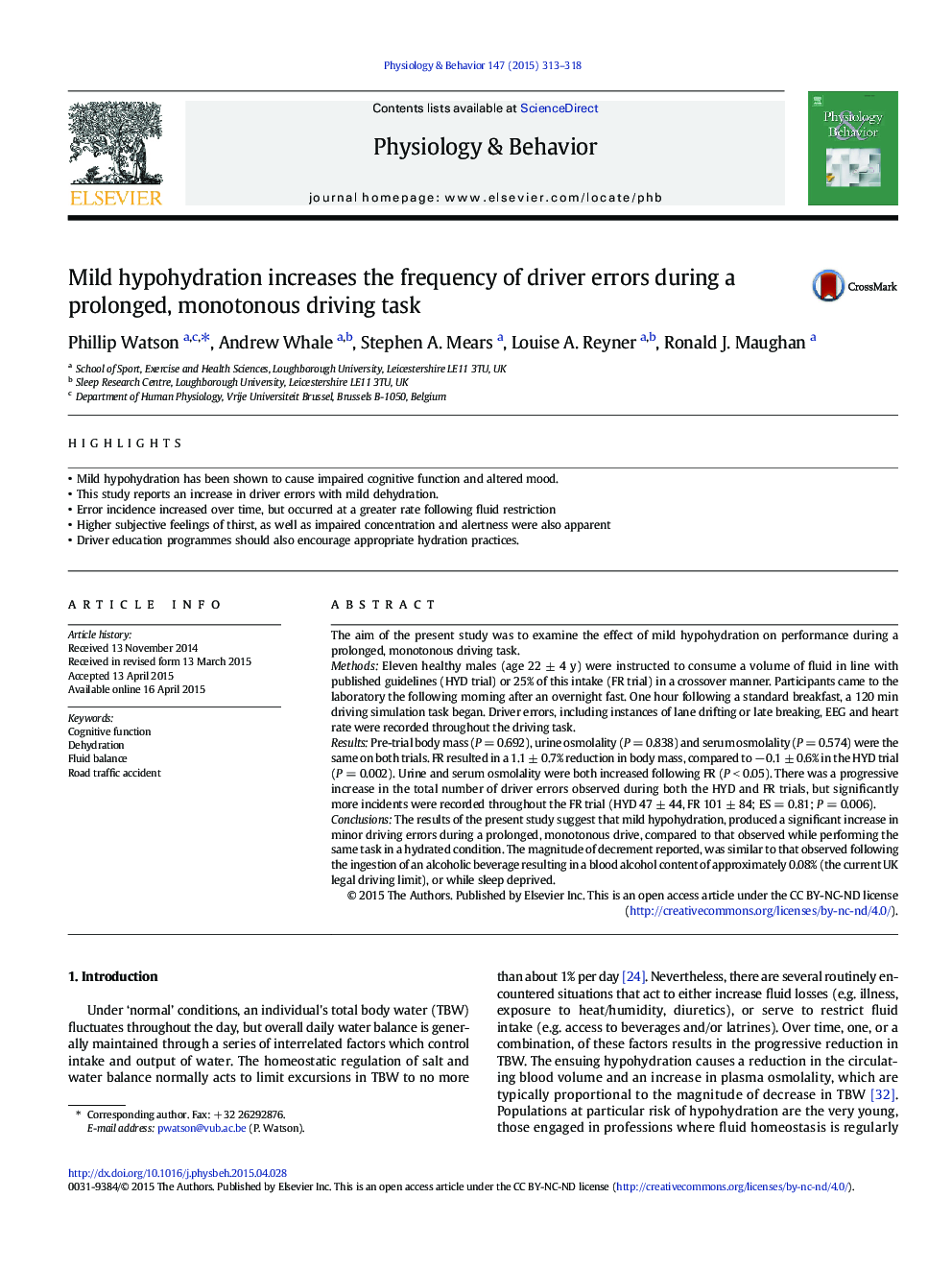| Article ID | Journal | Published Year | Pages | File Type |
|---|---|---|---|---|
| 5923503 | Physiology & Behavior | 2015 | 6 Pages |
â¢Mild hypohydration has been shown to cause impaired cognitive function and altered mood.â¢This study reports an increase in driver errors with mild dehydration.â¢Error incidence increased over time, but occurred at a greater rate following fluid restrictionâ¢Higher subjective feelings of thirst, as well as impaired concentration and alertness were also apparentâ¢Driver education programmes should also encourage appropriate hydration practices.
The aim of the present study was to examine the effect of mild hypohydration on performance during a prolonged, monotonous driving task.MethodsEleven healthy males (age 22 ± 4 y) were instructed to consume a volume of fluid in line with published guidelines (HYD trial) or 25% of this intake (FR trial) in a crossover manner. Participants came to the laboratory the following morning after an overnight fast. One hour following a standard breakfast, a 120 min driving simulation task began. Driver errors, including instances of lane drifting or late breaking, EEG and heart rate were recorded throughout the driving taskResultsPre-trial body mass (P = 0.692), urine osmolality (P = 0.838) and serum osmolality (P = 0.574) were the same on both trials. FR resulted in a 1.1 ± 0.7% reduction in body mass, compared to â 0.1 ± 0.6% in the HYD trial (P = 0.002). Urine and serum osmolality were both increased following FR (P < 0.05). There was a progressive increase in the total number of driver errors observed during both the HYD and FR trials, but significantly more incidents were recorded throughout the FR trial (HYD 47 ± 44, FR 101 ± 84; ES = 0.81; P = 0.006)ConclusionsThe results of the present study suggest that mild hypohydration, produced a significant increase in minor driving errors during a prolonged, monotonous drive, compared to that observed while performing the same task in a hydrated condition. The magnitude of decrement reported, was similar to that observed following the ingestion of an alcoholic beverage resulting in a blood alcohol content of approximately 0.08% (the current UK legal driving limit), or while sleep deprived.
